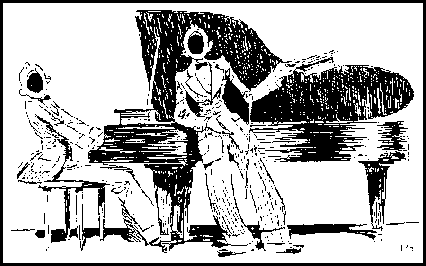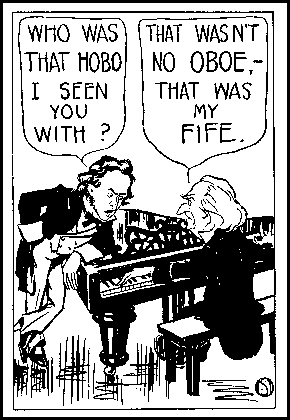Hide Us
Anymore
Richie Havens
(with Steve Davidowitz)
(Spike)

His path has been exciting. After all, he came out of one of the most desperate slums in America, and was smack dab in the middle of the music and social revolution of the 60s. His story certainly could have been as powerful as that of Malcolm X, or James Baldwin, or Richard Wright.
Instead, what we get is, "My father was a hard worker who made Formica tables. He was a pretty good musician too, a piano player with a feel for jazz." That's it for dear old dad. Did he talk to you Richie? Did he beat you? Did he love you? Did he ever have a heart-to-heart with you? Did he suffer for the kids, was he righteous, or did he go out and piss his money away on drink or the numbers? Where is he now? Did he like "Stonhenge," or did he find it stupid?
Havens tells us his mother worked "until I was nineteen." We should know a bit more about her too, right? Did she beat you, pray over you, cry over you, hate you, ignore you, love you to death? Was she touched by "Freedom," or did she figure you were just being a noisy kid again?
We find out about his wife and his daughters in the "Acknowledgments" section, but that's it. Is there love there? Hate? Anger? Does he do anything when he's with them outside of reminiscing about all the famous people he's known, and all the deals he's signed.
There are fourteen pages given over to Discography, but there's only half a page for his two brothers who are disabled. He spends twenty-five pages to give us the words to his songs, but says practically nothing about these two who grew up poor, like him, but now live out their lives in wheelchairs.
Oops. They do get one thing from their famous brother. They get patronized. "We need to open our minds," he intones, "and not be so quick to shut off opportunities for the so-called handicapped to socialize with the rest of us, without fear." Now what the hell does that mean?
Maybe Havens just isn't a word person. He certainly is a mess when it comes to the lyric muse, if we are to judge by his songs:
What good are all those documents?
those well-kept worthless scrolls;
When the hand you bit turns and slaps your face,
the hands you tried to mold,
And they leave you out in the cold,
with your pockets full of gold,
Yet you cannot pay the toll,
of the brave and the bold who are shoutin'
Hey come on, you've got something better to do.
It puts us in mind of Lolita's favorite song, as reported to us by Humbert Humbert:
And the carmen, and the starmen, and the barmen,
and the starmen, and the barmen, and the carmen...
Maybe we should blame it all on his amanuensis, Steve Davidowitz. They tell us that when he isn't writing puff pieces for fading stars, he works for the Daily Racing Form. His previous best-seller was something called Betting Thoroughbreds. Here he's obviously betting on a horse who won by a nose thirty years ago, and is looking to win a couple more races before they send him out to pasture.
But what is missing here is something rather important for a biography --- in fact, for any book. It's something called "heart."
 Ritchie and Davidowitz have done a triple by-pass here. There's extensive discussion of recording contracts and the big hits and the million record sales and the folk scene in Greenwich Village and some thoughts about drugs and corporate finance and the plight of blacks in a white-run world. But there's not a word about what goes on in the heart of a man who, after all, left a world of abysmal poverty behind --- was able to haul himself up by himself, out of the morass, make an apparent success of his life.
Ritchie and Davidowitz have done a triple by-pass here. There's extensive discussion of recording contracts and the big hits and the million record sales and the folk scene in Greenwich Village and some thoughts about drugs and corporate finance and the plight of blacks in a white-run world. But there's not a word about what goes on in the heart of a man who, after all, left a world of abysmal poverty behind --- was able to haul himself up by himself, out of the morass, make an apparent success of his life.
From time to time, he tries to give us some insight into his thoughts. For instance, he says that he once wrote a book that was never published, on "unconsidered little things." Like?
The very minute Western civilization created Santa Claus it also created no Santa Claus. No Santa Claus can be experienced hurtfully by some people while no one is paying attention ... Class distinctions take root through such unconsidered little things."
Eh?
We suspect that Havens is not a bad sort. His politics seem to be caring, and, after all, one who sings about our "selling guns to the Arabs and dynamite to the Jews" has something going on besides famous friends and golden record sales.
The title of the book is They Can't Hide Us Anymore, but our read on this is that, for unknown reasons, the real Richie Havens has been carefully hidden away from us.
in slightly shorter form
in the on-line magazine salon.com.